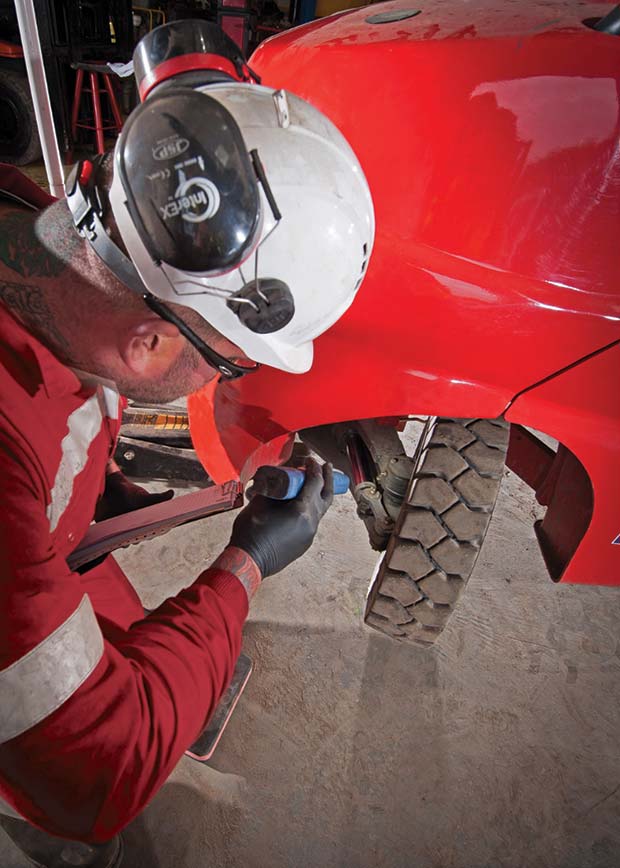CFTS Technical Manager (North), Shaun Prendergast discusses the importance of working to an agreed Code of Practice.

(North).
As an organisation grows, it’s easy for standards to slip. That’s why, with more than 450 accredited companies, one of our top priorities is ensuring that each and every one of them is working to the QA Code of Practice and the highest standards possible.
Trained and informed administration
Mistakes in administration of Thorough Examinations can come at a high cost. Anyone involved in handling and/or managing CFTS paperwork and records must complete our Thorough Examination Manager Course – ensuring they’re fully-equipped for the job.
Informed guidance
Because there is no single piece of legislation covering the Thorough Examination of fork lift trucks, confusion can arise. That’s why we regularly update members with all the latest developments and offer guidance on ‘tricky’ subjects.
What’s more, we regularly review our criteria to ensure that it meets the needs of the law, the industry and – above all else – fork lift truck employers.
Competent ‘Competent Persons’
According to The Simple Guide for Employers: Thorough Examination of Lifting Equipment (INDG422) produced by the HSE, a competent person should have appropriate practical and theoretical knowledge of the lifting equipment being examined so they can detect defects and/or weaknesses, and assess the importance they are in relation to the safety and continued use of the equipment without injury to the operator or innocent bystanders/pedestrians.
At CFTS, we go further: demanding that, as well as relevant experience, competent persons complete a detailed, two-day Thorough Examination course. This must then be revalidated every five years to ensure skills and knowledge are kept up-to-date.
 Independent examiners
Independent examiners
LOLER allows that the engineer that carries out your Thorough Examination can also be the one who carries out the routine servicing and maintenance, however, for an engineer to do this, they must be able to carry out their duty without fear or favour. Our members ensure this happens by undertaking risk assessments to identify the measures needed to ensure the independence and impartiality demanded and put these in place.
Informing local enforcing agencies
Under Regulation 10 of LOLER, engineers carrying out Thorough Examinations are duty-bound to inform the HSE if, upon completion of the examination, the machinery has a defect which could (or is imminently likely to) endanger life or cause injury. Importantly, even if the fault is remedied within 24 hours – and the equipment has not been used – Competent Persons have a duty to report.
While we do expect a lot from our companies, this ensures they’re well-equipped to deliver a truly thorough Thorough Examination: ensuring their customers are working legally and safely.
For more information about CFTS Thorough Examinations, please visit the website: www.thoroughexamination.org.
CFTS




Comments are closed.